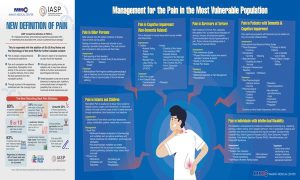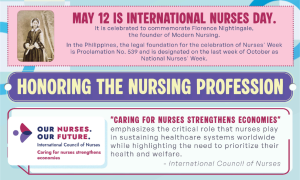Stress may creep up in many different scenarios, whether it’s being swamped with tasks at work, dealing with personal problems, or even anxiety about canceled plans during this pandemic. Too much stress is bad and can pose various health risks to people of any age.
The Adverse Effects of Stress on Our Health
If left unmanaged, these are just some of the negative effects of stress to a person:
- Elevated blood pressure that can lead to cardiovascular diseases
- Higher risk for depression and anxiety
- Weakened immune system and susceptibility to autoimmune disease
- Insomnia due to heightened state of alertness
- Cognitive and memory problems
- Skin conditions, such as eczema and psoriasis
- Lowered sexual desire or sexual dysfunction
Plus, stress is linked to five (5) of the leading causes of death, namely heart disease, cancer, liver cirrhosis, accidents, and suicide.
Signs and Symptoms
What are the signs that someone is under a lot of stress? It mainly affects a person in three areas: emotional, physical, and mental. Below are a few examples.
- Emotional
- Moodiness, frequent emotional disturbance such as frustration and agitation
- Constantly feeling overwhelmed without a sense of control
- Feelings of loneliness or helplessness
- Self-isolation or avoiding others
- Physical
- Lethargy or low energy levels
- Upset stomach leading to diarrhea, constipation, or vomiting
- Tight and tense muscles and body pain
- Dry mouth or difficulty in swallowing
- Mental
- Pessimism or focusing on the negative
- Having trouble remembering things, disorganization
- Always worrying or thinking of the worst-case scenario
- Inability to focus on tasks
How to Cope with Stress
There are times when stress cannot be helped, so the only way to deal with it is to learn how to manage and cope. Here are some ways how:
1. Talk to someone you trust
Telling someone else about what’s bothering you can lift a massive weight off your chest. Whether this is a family member, friend, or therapist, having someone to talk to is crucial to maintaining emotional stability. For some, talking about their feelings is a great way to articulate what they are going through, and helps them feel more understood.
If talking about your struggles is not something you are comfortable with, try to seek the comfort of the people you are closest to in order to combat feelings of loneliness.
2. Slowly incorporate healthy habits in your routine
This may be easier said than done, but healthy habits are indeed another helpful way to combat stress. Eating healthy, well-balanced meals, incorporating proper amounts of exercise each week, getting at least seven hours of sleep, and going on frequent breaks are all beneficial for those who feel stressed.
There is no need to do these all at once; instead, take small steps by slowly incorporating each habit until you feel more accustomed to them as a routine. As always, get support from your loved ones.
3. Avoid drugs or excessive alcohol consumption
Taking drugs is never an option to manage stress as it does nothing to resolve the problems. Dependency can form, and it can make the struggles associated with stress worse in the long run.
While having an occasional drink with family or friends is socially acceptable, be aware of its limits. Be a responsible drinker and be disciplined enough to stop after the second glass to moderate alcohol consumption. Otherwise, best to stay away from it altogether.
4. Go on a break
Taking mini-breaks in between work is perfectly acceptable, such as going for a walk, playing a game, or taking a shower when working from home to lift your mood. In light of this, it is also alright to take a shower even when tired, contrary to popular belief. Don’t allow superstition to cloud your judgment; instead, prioritize self-care.
Do not feel embarrassed about needing to take a break from the responsibilities and reset. This is applicable even when working from home. Burnouts and stress due to work can occur wherever, so be kind to yourself and take a short leave if things are becoming too much.
5. Acknowledge the need for more help
Professionals can help people who feel close to hitting rock bottom due to stress. If things are getting too overwhelming or if they are already thinking of self-harm, there’s no shame in seeking help. From getting anxiety disorder treatment to consulting with a doctor in psychiatry, professional help comes in many forms.
One Day at a Time
Managing stress involves taking steps to ensure a well-balanced lifestyle. Do not feel pressured to go through everything in this list. Take your time, make small changes to enjoy many benefits, and, no matter how little, celebrate that progress.
If you are still under significant amounts of stress, do not hesitate to see a professional who can help you weather the storm. MakatiMed has seasoned doctors and counselors whom you can reach out to whenever you are ready. Take care of your well-being, and stay safe.











